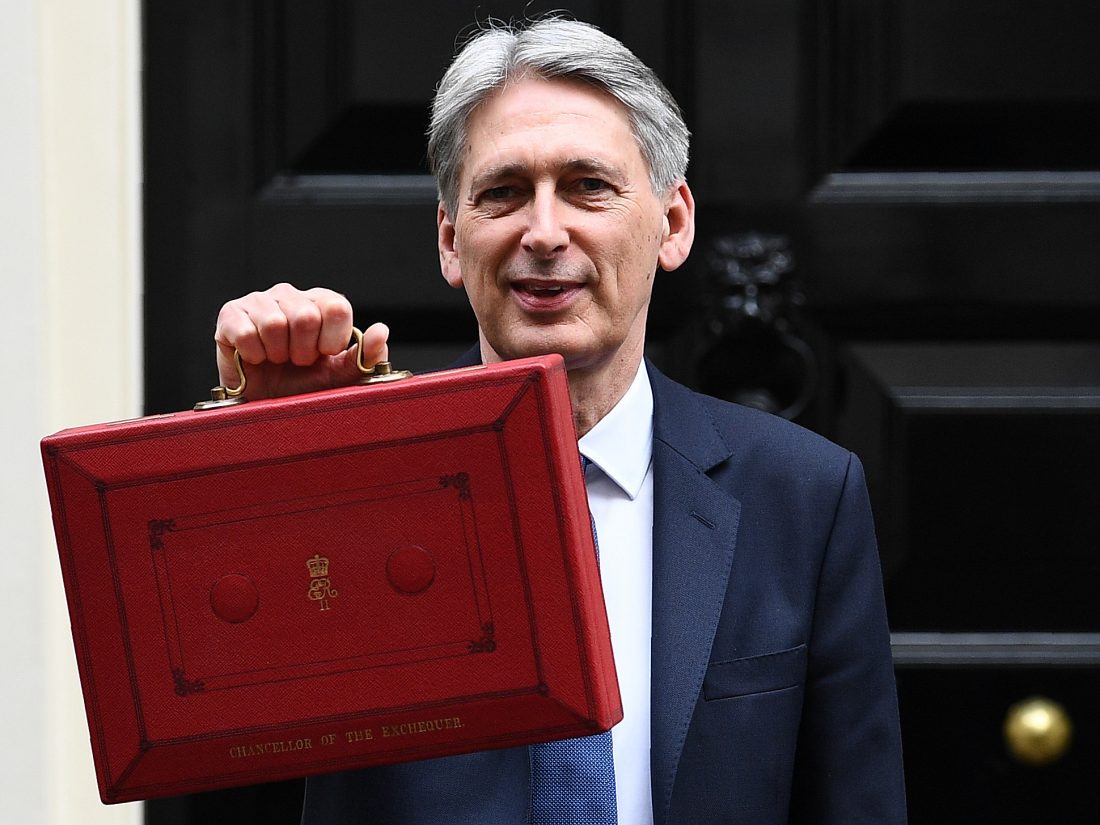
Budget November 2017
Comment by John Shepperd; Economics Adviser to Butler Toll Asset Management. 24th November, 2017
The UK Budget is often an over-hyped event. In part this is due to the tradition and ceremony that surrounds it – the obligatory photo of the Chancellor holding up the Budget red box on the steps of number 11, the packed House of Commons, the live broadcast on TV, and the extensive comment that follows it, with many papers publishing post-Budget supplements. Also perhaps the fact that this is the only speech in the House where the presenter is allowed to drink alcohol, although none these days have the nerve to take advantage of this (the last being Ken Clarke with a glass of whisky).
There have been some Budgets which did have a real impact – Lawson’s tax cutting in the late 1980s and Brown’s public spending ones in the early 2000s. But most do not decisively change the direction or pace of progress of the economy and often end up being largely forgotten after the initial flurry of interest. Poor Chancellor Hammond was always in a tough spot going into this one – “between a rock and a hard place” said the influential Institute for Fiscal Studies in its pre-Budget Report.
Perhaps the one feature of the Budget that will be most long remembered is the draconian cut in the official economic forecasts. Produced since 2010 by the Office for Budget Responsibility (OBR), it had warned that it had previously been too optimistic on the trend growth of productivity, and would incorporate a more subdued growth path going forward. And so it did, correspondingly reducing the forecast of the growth of average earnings, real incomes and consumer spending, and by implication what constitutes trend growth in the UK. So a set of GDP growth forecasts out to 2021 with annual growth each year just either side of 1½% – the lowest official forecasts in living memory.
The proverbial “rabbit out of the hat” was the abolition of stamp duty for first-time buyers up to £300,000. Helpful to many, given the average home price in the UK of around £210,000. Less so to those in London, given an average of around £470,000 (Nationwide figures).
It begs the question whether the problems in the housing market are best solved by boosting demand when the issue is a chronic shortage of supply. The enthusiasm for the stamp duty change was dampened by the OBR’s view that this would serve to push up house prices and be of more benefit to existing home owners than first time buyers. Hence the aim to boost house building to an annual rate of 300,000 with an extra £15bn pledged to help housebuilding over the next five years.
Hammond did increase expenditure in other areas as well – more for the NHS, help to resolve the obvious anomalies with Universal Credit, and extra regional spending. Other than that the usual fine tuning – over-indexation of tobacco duties and under-indexation of those on alcohol. The rise in personal allowances and so on.
The net result of higher spending and weaker growth is that the fiscal deficit is expected to come down, but at a much slower pace than previously forecast. From net borrowing of £50bn this financial year down to £30bn by 2021/22 – a figure which was expected to be £17bn back in the March Budget. The hope that at some stage we may end up with a balanced budget is still there but is becoming an increasingly vague statement of intent, rather than something which is in the hard forecasts.
One is left with the impression that Hammond played a weak hand rather well. But if the Conservative backbenches were looking for something to revitalise their Party’s’ prospects, and to outline a brave new vision for the future, this was not it. Blame the OBR.
Please address enquiries to: office@butlertoll.co.uk
Follow us on Twitter: @butlertoll_uk

Sorry, the comment form is closed at this time.